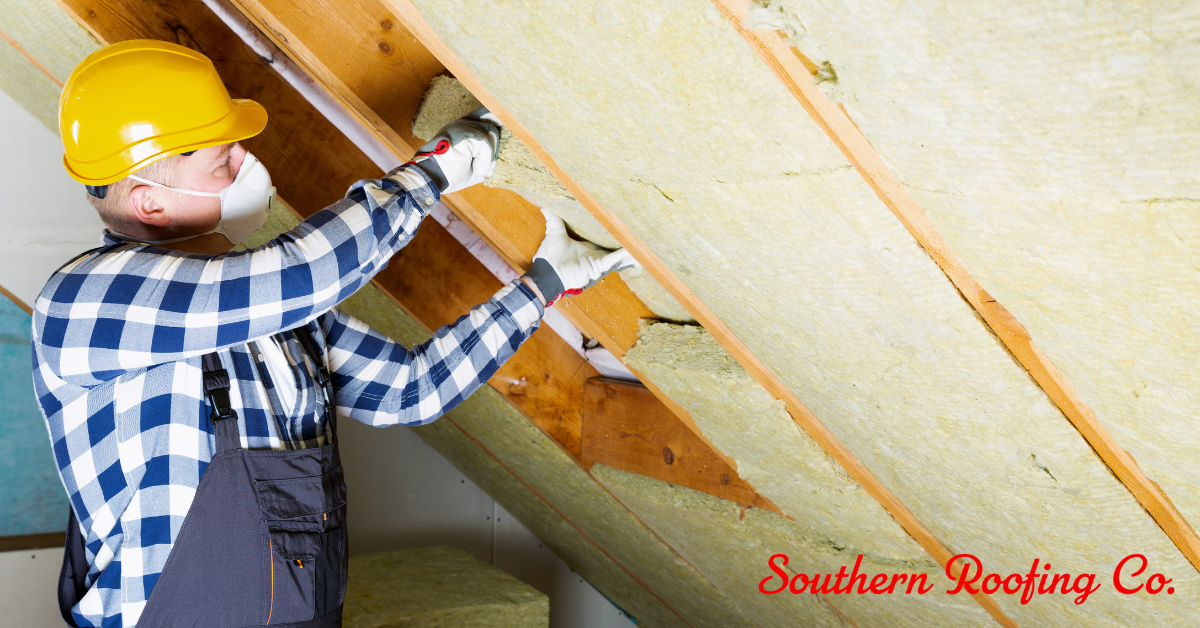
Insulating your commercial roof is essential for energy efficiency and long-term savings on heating and cooling costs. A well-insulated roof helps maintain a comfortable indoor temperature, reduces energy consumption, and lowers your utility bills. However, selecting the right insulation for your commercial roofing project can be a daunting task, with so many options available on the market. To help you make an informed decision, we've put together this comprehensive guide on choosing the best insulation for your commercial roof in Middle Tennessee.
Understand Your Commercial Roofing Needs
Before you reach out to a roof contractor, it's essential to understand your specific commercial roofing requirements. Factors like the type of roof, climate, building usage, and budget play a critical role in determining the appropriate insulation for your building.
Consult with a Reputable Roof Contractor
A knowledgeable roof contractor can offer invaluable advice on selecting the best insulation for your commercial roof. Look for a contractor with a proven track record in Middle Tennessee, as they will be familiar with the local climate and specific requirements. Discuss your roofing needs and budget constraints with them, and they will help guide you toward the right insulation material and thickness.
Consider Different Insulation Materials
There are several types of insulation materials suitable for commercial roofing applications, each with their own set of advantages and disadvantages. Some of the most popular insulation materials include:
- Polyisocyanurate (Polyiso): This is one of the most commonly used insulation materials for commercial roofing, offering a high R-value (thermal resistance) per inch. Polyiso is resistant to moisture, mold, and fire, making it an excellent choice for various climates and roof types.
- Expanded Polystyrene (EPS): EPS is a lightweight, rigid foam insulation that provides consistent thermal performance throughout its lifespan. It has a lower R-value per inch than Polyiso, but it's more affordable and can be an excellent option for projects with budget constraints.
- Extruded Polystyrene (XPS): XPS is similar to EPS but offers a higher R-value per inch and better moisture resistance. However, it's generally more expensive than EPS.
- Mineral Wool: This insulation material is made from inorganic fibers and offers excellent fire resistance and acoustic properties. Mineral wool has a lower R-value per inch compared to foam insulation materials but can be a good choice for buildings that require enhanced fire protection or soundproofing.
Evaluate R-Value and Thickness
When choosing the best insulation for your commercial roofing project in Middle Tennessee, consider the material's R-value and the required thickness. The R-value is a measure of a material's thermal resistance, and a higher R-value indicates better insulation performance. Climate plays a crucial role in determining the appropriate R-value, and consulting with a local roof contractor will help you identify the ideal R-value for your project.
Keep in mind that while a higher R-value is generally better, it can also increase the insulation's thickness and weight, which may impact the structural integrity of the roof. Discuss these factors with your roof contractor to find the right balance between performance and practicality.
Assess Moisture and Fire Resistance
Moisture and fire resistance are essential factors to consider when choosing insulation for your commercial roofing project. Moisture can degrade the insulation's performance and lead to mold growth, while fire resistance is critical for ensuring the safety of the building and its occupants. Evaluate the insulation materials' moisture and fire resistance properties, and consult with your roof contractor to determine the best option for your specific needs.
Examine Environmental Impact and Sustainability
Selecting eco-friendly and sustainable insulation materials is not only beneficial for the environment but can also contribute to earning green building certifications such as LEED. When choosing insulation for your commercial roof, consider the following sustainability factors:
- Recycled Content: Some insulation materials, like mineral wool and EPS, can contain a significant percentage of recycled materials, reducing the demand for raw resources and minimizing waste.
- Energy Efficiency: Insulation materials with higher R-values per inch will reduce energy consumption and lower your building's carbon footprint.
- Durability: Opt for insulation materials with a long lifespan to minimize the need for frequent replacements, which can be both costly and environmentally detrimental.
- End-of-Life Disposal: Some insulation materials can be recycled or disposed of with minimal environmental impact. Check with your roof contractor for recommendations on sustainable disposal options.
Factor in Installation and Maintenance Costs
While the upfront cost of insulation materials is important, don't overlook the long-term costs associated with installation and maintenance. Some insulation materials may require more complex or time-consuming installation processes, leading to higher labor costs. Additionally, materials that are susceptible to moisture or require frequent maintenance can result in increased long-term expenses. Consult with your roof contractor to ensure you're making a cost-effective decision for your commercial roofing project in Middle Tennessee.
Your Commercial Roof
Choosing the best insulation for your commercial roof is a critical decision that impacts your building's energy efficiency, comfort, and long-term maintenance costs. By understanding your commercial roofing needs, consulting with a reputable roof contractor, evaluating different insulation materials, and considering factors like R-value, moisture and fire resistance, environmental impact, and installation costs, you can make an informed choice for your project in Middle Tennessee. If it’s time to install a new roof on your commercial building, you can request a quote from Southern Roofing Co. today!


